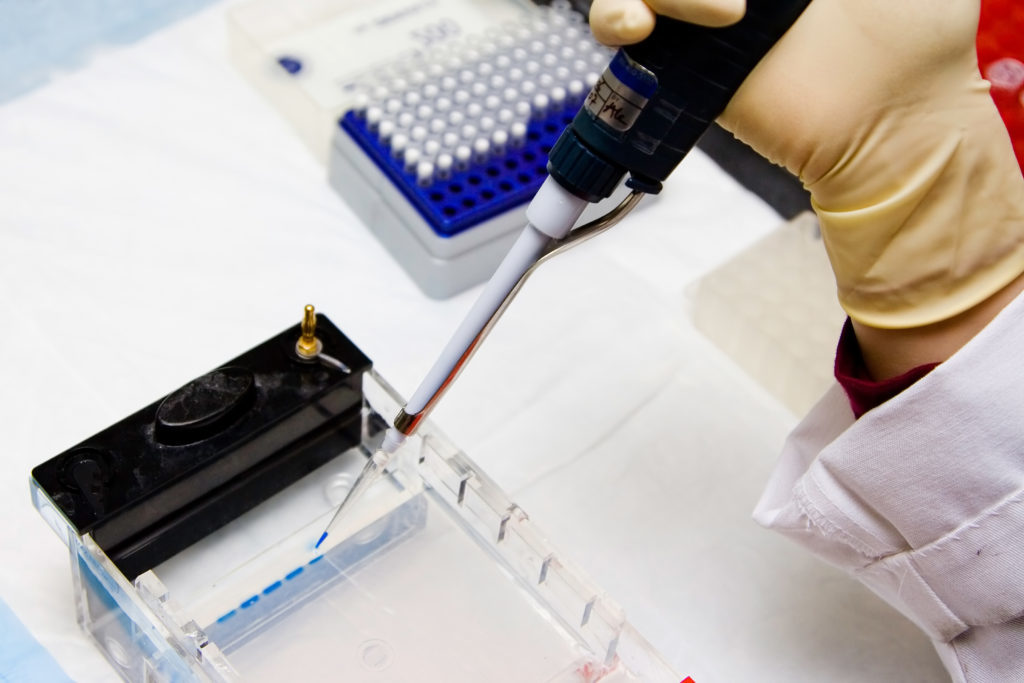Published in the American Journal of Obstetrics and Gynecology
RESEARCH BY IGENOMIX LINKS A LOW ABUNDANCE OF LACTOBACILLUS IN THE UTERUS WITH A POOR REPRODUCTIVE OUTCOME
- 50% of the infertile women who underwent the study had a low abundance of Lactobacillus
- Implantation rate in patients with low Lactobacillus barely reached 23%, compared to the 61% of the group with high abundance
- The miscarriage rate in patients with a low presence of Lactobacillus in the uterus was 60%, compared to 16% of the group with a Lactobacillus-dominant profile
- This study once again confirms the importance of the endometrium in gestation and points to the benefit of pre-testing uterine flora in patients with reproductive difficulties.
Valencia, 7th December, 2016 – Research by Igenomix, a biotechnology company specializing in genetic research, entitled ‘Evidence that endometrial microbiota have an effect on implantation success or failure’, published internationally in the American Journal of Obstetrics and Gynecology, confirms the existence of bacteria in the endometrium and associates a low presence of Lactobacillus in the uterus with a worse reproductive prognosis.
“This research was initially necessary to confirm what other studies had already proposed, namely that bacteria do exist in the human endometrium. Through massive sequencing of samples from healthy women, we found two types of microbial profiles: “Lactobacillus-dominated (LD)” and “not Lactobacillus-dominated (NLD)”, explains Inmaculada Moreno, lead author of the research.
“Once this fact had been verified, we asked ourselves about the influence of these bacteria in reproductive prognosis, whether response to assisted reproduction treatment would be the same in patients with Lactobacillus-dominated endometrial flora as in patients whose flora is not dominated by Lactobacillus” the Igenomix researcher added.
The work, which involved a total of 35 patients in assisted reproduction, reveals a significant drop in successful implantation rate of just 23% in patients who had a lower abundance of Lactobacillus in the endometrium – “a very low rate in view of the figures in assisted reproduction achieved nowadays, in which the average rate exceeds 50%”, Dr. Moreno indicated.
Both in implantation rate (60% in LD patients, 23% in NLD patients) and miscarriage rate (16% in LD patients; 60% in NLD patients), the results of the research have revealed very significant differences, which demonstrates the importance of an abundance of bacteria of the Lactobacillus genus in the uterus in order to conceive and carry a pregnancy to term. In fact, there was no live birth following assisted reproduction treatment in the group of patients with a low abundance of Lactobacillus, compared to the 10 babies born in the LD group.
“We now face a new line of research in regard to the endometrium, another piece of the puzzle to consider when diagnosing and implementing solutions for patients with reproductive difficulties”, explains Dr. Carlos Simón, scientific director of Igenomix and Adjunct Professor at Stanford, an international expert on human endometrium.
With the development of ERA (Endometrial Receptivity Array) based on testing the expression of 238 genes in the endometrium, which first enabled assisted reproduction to predict whether receptivity would be successful or not when performing embryo transfer, the reproductive prognosis of many patients with a displaced window of implantation has improved in recent years.
“This study also enables the patient’s microbiome to be determined to reveal the bacteria in her endometrium, thus enabling greater success in pregnancy rates by treating the flora (in the case of NLD bacteria) prior to embryo transfer”, says Professor Simon.
Patients who participated in the research study were given an ERA test prior to embryo transfer, which permitted the high rate of non-implantation in the NLD group to be directly associated with microbiome.
This finding raises the need to study the microbiome as a diagnostic test in those couples who consult their gynecologists regarding their reproductive difficulties. A study of the flora may offer the possibility of improving the patient’s reproductive prognosis by stabilizing her endometrial flora.
In addition to Igenomix and Valencia University, the following companies also participated in the study: Lifesequencing and Biopolis (Science Park of Valencia University), INCLIVA.
About Igenomix
IGENOMIX is a bio-technology company providing advanced services in reproductive genetics. Its consolidated experience and advanced research capabilities make it one of the world leaders in this field and guarantee the provision of effective solutions tailored to different infertility problems. It is present in Valencia (Spain), Miami, Los Angeles, New York, Mexico City, Sao Paulo, Dubai and Delhi, with a workforce of over 170 professionals.
Further information about the company at https://www.igenomix.com
For further information:
IGENOMIX Marketing Dept.
Marisún Silvestre – marisun.silvestre@igenomix.com
Paula Miquel – paula.miquel@igenomix.com
For India and Middle East: divya.bhasin@igenomix.com



